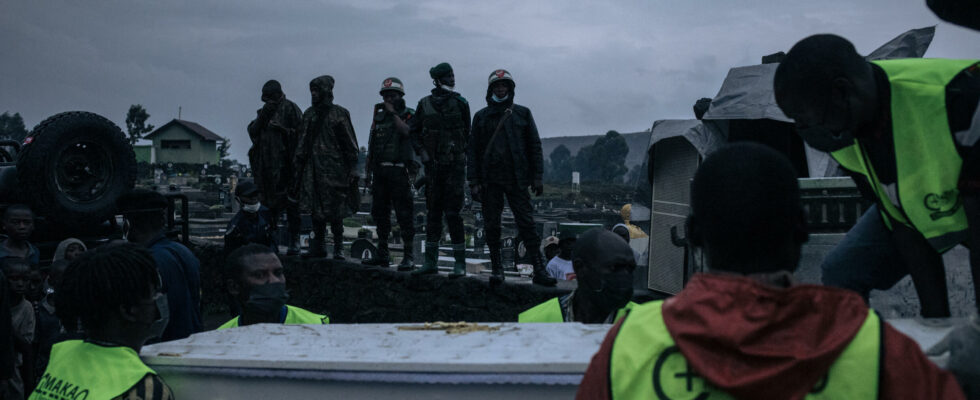The International Criminal Court announced Monday October 14 the resumption of its investigations in the Democratic Republic of Congo. Investigations into serious crimes – falling under the Rome Statute – in the east of the country. Twenty years after its first investigations in Ituri, which resulted in the conviction of several warlords, the ICC will now look into more recent crimes committed in the province of North Kivu, the ICC prosecutor announced Monday evening. Karim Khan. An announcement welcomed by various human rights organizations
3 mins
In a press release published Monday October 14, the prosecutor of the International Criminal Court announced the “ reactivation » of his investigations in the Democratic Republic of Congo. This decision follows a visit to The Hague by Congolese Deputy Minister of Justice, Samuel Mbemba Kabuya, last week. Since 2004, seven Congolese officials have already been the subject of arrest warrants from the ICC – and five of them have been tried there – as part of investigations into crimes committed in the country.
Also readICC: the prosecutor decrees the “reactivation” of investigations in the DRC
Investigations must be extended to all armed actors, including security forces, according to Lucha.
“ Already, it’s just a reactivation of the investigations, explains Stewart Muhindo, reached by telephone by Alexandra Brangeon from the Africa editorial team. So what we want is for investigations, obviously, to be carried out and to lead to prosecutions against people who have been identified as perpetrators of serious human rights violations. Because it exists. Secondly, these investigations extend to all armed actors who are involved in the armed violence taking place in the North Kivu province.
We know that with the government, there is a very strong focus on the M-23, obviously with good reason, because there are serious crimes committed by the M-23 and the Rwandan army and all the militias who are involved in this crisis. However, it is important that investigations extend to other armed actors, notably the ADF who are Ugandan rebels who also commit serious crimes, notably in Béni, in the north of the province. There are also even some security forces who are involved in serious crimes that could fall within the jurisdiction of the ICC. We remember, for example, the massacre of peaceful protesterson August 30, 2023 in the city of Goma and these are serious crimes which should also interest the ICC prosecutor. »
This is a good thing because all victims have the right to justice, regardless of the perpetrators of the crimes, insists Jean Mobert Senga of Amnesty International, also joined by Alexandra Brangeon. “ Therefore, the agenda of the Congolese authorities, which consisted of confining possible investigations only to crimes committed by the M-23 and by the Rwandan army, is a political agenda to which the ICC cannot and must not submit; it is a good thing for us and we think that there were crimes committed by all the parties to the conflict in North Kivu, by the M-23 with the support of the Rwandan army, but also by the Congolese army; including crimes that we have documented and which could also fall within the jurisdiction of the Court.
But as I said, there have also been other serious crimes which have been committed in other regions of the country which fall under the jurisdiction of the ICC for which the DRC has shown either a lack of will or a lack of ability to judge. Even for these crimes too, the ICC must intervene. »
